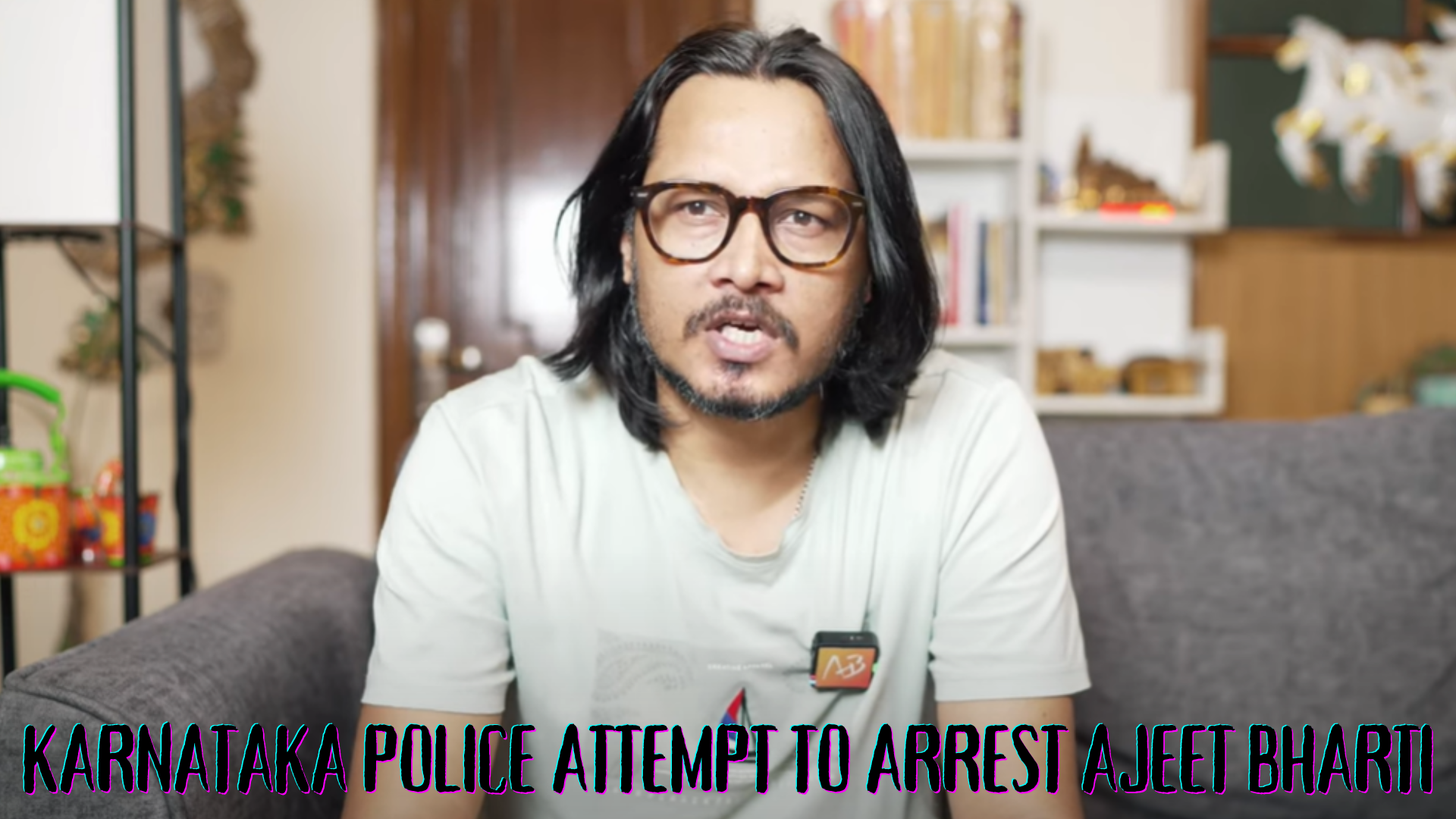Karnataka Police attempt to arrest Ajeet Bharti : Introduction to Ajeet Bharati’s Arrest Scenario
Ajeet Bharati, an individual whose activities attracted the attention of law enforcement, found himself in the midst of a contentious arrest scenario. Amidst unfolding events, the Karnataka Police began proceedings to arrest Bharati. However, in a dramatic twist, Uttar Pradesh Police intervened, taking custody of Bharati. The operation, which caught the eyes of the public and media alike, gives rise to questions about the inter-state police coordination and the legal complexities involved. Such a situation underscores the intricate dance of jurisdictional powers and the procedural protocols that govern criminal arrests in India.
Details of Karnataka Police’s Attempt to Arrest Ajeet Bharati
The Karnataka Police’s operation to apprehend Ajeet Bharati was marked by a sudden and well-coordinated effort. The officers traveled from Karnataka to Uttar Pradesh with the intent to execute an arrest warrant. The specifics surrounding the warrant and the precise charges against Bharati remained undisclosed at the time. Upon arrival, they coordinated with the local authorities to facilitate the arrest. However, before they could secure Bharati, the Uttar Pradesh Police intervened. They took charge of the situation, effectively disrupting the Karnataka Police’s initial plan to take Bharati into custody. The intervention led to an unusual situation where law enforcement agencies of different states were involved in a single individual’s arrest attempt.
Intervention of Uttar Pradesh Police: The Turn of Events
When the Karnataka Police arrived in Uttar Pradesh to apprehend Ajeet Bharti for undisclosed charges, the situation took a sharp turn. The local police, acting under the state’s jurisdiction and possibly following higher-level directives, intervened promptly. Uttar Pradesh Police, under the leadership of the current administration, asserted their authority and proceeded to take custody of Bharti.
Karnataka Police faced unexpected resistance from their UP counterparts. The legitimacy of jurisdiction and procedures sparked a confrontation. Ajeet Bharti found himself in the grasp of UP Police, altering the course of action. Speculation about political and administrative directives influencing the intervention began to circulate.
The intervention by UP Police dramatically altered the direction of events, signifying far-reaching implications for inter-state police cooperation and legal protocol.
Legal Implications of Inter-State Police Coordination
Inter-state police coordination in India is guided by a legal framework that ensures compliance with the respective laws of the states involved as well as the central legislation. Key aspects of this coordination include:
Adherence to jurisdiction: Police forces must respect state boundaries and jurisdictional authority.
Inter-state cooperation: Collaboration is essential for executing arrests or investigations that cross state lines, this is subject to approval by the authorities in the respective states.
Transfer of custody: Legal provisions exist for the transfer of custody of an accused from one state’s police to another. This is typically facilitated through court orders
.
Mutual aid: States may request support from each other to maintain public order or investigate crimes, based on mutually agreed terms.
Compliance with laws: All actions must comply with the Criminal Procedure Code (CrPC) and other relevant laws.
Effective coordination is essential to uphold the rule of law and protect the rights of individuals across state lines
Public and Media Reaction to the Arrest and Transfer
The arrest and subsequent transfer of Ajeet Bharti by Karnataka Police, followed by the intervention of Uttar Pradesh Police, elicited a broad spectrum of reactions from the public and media. On social platforms:
Citizens expressed concern over journalistic freedoms and law enforcement’s approach to media practitioners. Debate ensued regarding state jurisdiction and police conduct during interstate operations, reflecting a deep interest in the rule of law and procedural norms.
In contrast, media outlets:
Varied in their coverage, with some focusing on potential legal precedents while others raised issues pertaining to press rights.
Commentary often reflected the editorial stance of the media houses, contributing to a multifaceted discourse on the incident.
Analysis of the Political and Social Context Surrounding the Arrest
The arrest of Ajeet Bharti draws attention to the intricate fabric of Indian politics and its social implications. At the heart of this event lies:
A complex interplay between state agencies, with Karnataka Police initiating the arrest and Uttar Pradesh Police later taking custody. Questions about federalism and law enforcement jurisdiction in India, pointing to underlying political tensions between states. Public discourse heavily influenced by political ideologies and the nature of charges that are often viewed through a prism of partisanship. The role of social media as both a battleground for freedom of expression and a flashpoint for legal action against individuals. Concerns over the protection of individual rights versus collective societal considerations, amidst the enforcement of laws related to public order and national security.
This context suggests a web of political maneuvers and social debates that surround law enforcement actions in contemporary India.
-Also Read: Indian 2 Trailer Review Kamal Haasan
